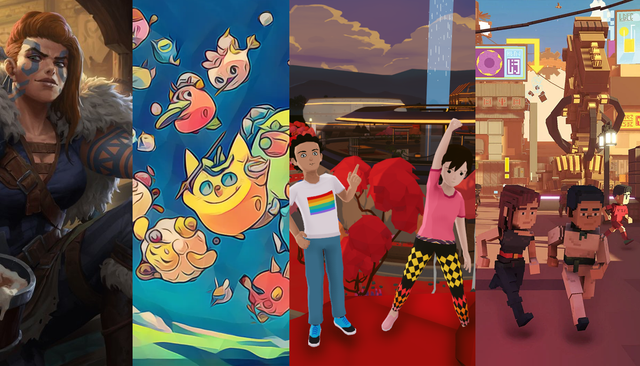Introduction
The introduction of NFTs has opened up a world of possibilities for gamers and developers alike. The world of gaming has experienced a significant revolution with the advent of non-fungible tokens (NFTs). NFTs, built on blockchain technology, have enabled the creation of unique, verifiable digital assets that can be owned, traded, and utilized within virtual environments. NFT games, which leverage these tokens, have gained immense popularity and introduced new and exciting gameplay mechanics. In this article, we will explore the different genres of NFT games and the impact they have on the gaming industry.
The Rise of NFT Games
In recent years, NFT games have gained significant traction and popularity. The emergence of blockchain technology and the growing interest in cryptocurrencies have contributed to the rise of NFT games. Players are drawn to these games because they offer unique gameplay experiences, financial incentives, and a sense of ownership over their in-game assets.
Popular Genres of NFT Games
I) Collectible Card Games
Collectible Card Games (CCGs) have been a popular genre for decades, and the introduction of NFTs has brought a new level of excitement to these games. NFT-based CCGs allow players to collect, trade, and battle with unique digital cards that hold real-world value. Each card is represented as an NFT, ensuring its authenticity and scarcity.
II) Virtual Real Estate Games
Virtual Real Estate Games leverage NFTs to enable players to own and trade virtual properties within a virtual world. These games simulate real estate markets where players can buy, sell, and develop virtual land or properties. NFTs represent these virtual assets, providing players with true ownership and the ability to monetize their investments.
III) Blockchain-Based RPGs
Role-playing games (RPGs) have long been a staple in the gaming industry, and blockchain technology has revolutionized this genre. NFT-based RPGs offer players the opportunity to collect unique characters, items, and equipment that can be used in battles or traded with other players. These NFTs add a new layer of rarity and value to the gameplay, as players can acquire powerful and exclusive assets that enhance their gaming experience.
IV) Sports and Fantasy Games
Sports and fantasy games have also embraced the concept of NFTs, bringing a new level of excitement and engagement to fans. NFT-based sports games allow players to collect digital representations of athletes, team jerseys, or memorable moments from real-world sporting events. These NFTs can be traded on the sports NFT market or used in virtual competitions, creating a unique and immersive sports gaming experience.
V) Puzzle and Strategy Games
Puzzle and strategy games have found a new dimension with the integration of NFTs. In these games, players can collect rare and valuable puzzle pieces or strategic assets that provide advantages in gameplay. NFT-based puzzle and strategy games encourage players to strategize, trade, and collaborate with others to solve complex challenges and achieve in-game success.
The Future of NFT Games
NFT games have already demonstrated their potential to revolutionize the gaming industry by providing players with true ownership, play-to-earn opportunities, and enhanced gameplay experiences. In the coming years, we can anticipate the emergence of new genres and gameplay mechanics within the NFT gaming space. Developers will continue to push the boundaries of creativity, integrating NFTs into existing game genres and introducing entirely new concepts that leverage the benefits of blockchain technology.
Conclusion
NFT games have transformed the gaming landscape, offering players new opportunities for ownership, value, and engaging gameplay experiences. From collectible card games to virtual real estate simulations, and blockchain-based RPGs to sports and fantasy games, the diverse genres within the NFT gaming industry provide something for every player.
